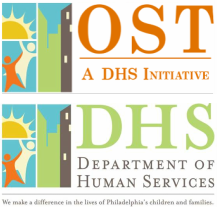What is the Structured Activities Approach?
Provider agencies in the OST network implement afterschool and summer programming using the Structured Activities Approach The goal of the Structured Activities Approach is to preserve the fun and flexibility of afterschool and summer programming while developing skills youth need to be successful in school and life.
The Structured Activities Approach allows OST providers to choose from three different instructional methodologies: Project-Based Learning (PBL), Experiential Learning and Service Learning. All three methods share common elements; each method gives students the opportunity to synthesize and apply knowledge over the course of a sustained project, and to hone essential skills like communication, collaboration and critical thinking.
The Structured Activities Approach allows OST providers to choose from three different instructional methodologies: Project-Based Learning (PBL), Experiential Learning and Service Learning. All three methods share common elements; each method gives students the opportunity to synthesize and apply knowledge over the course of a sustained project, and to hone essential skills like communication, collaboration and critical thinking.
- Project based learning (PBL) is an inquiry-driven method of teaching that asks questions relevant to the lives of students. This process begins with an open-ended Driving Question. Throughout the project, activities flow naturally from the Driving Question to the Culminating Event, a public presentation of the results of the project.
- Experiential learning emphasizes hands on immersion and skill building. Students work with teachers to identify a learning objective. Through a series of real world activities, students pursue their learning objectives, buttressed by guided reflection to build depth and complexity of understanding.
- Service learning promotes civic mindedness and roots students’ projects in real world outcomes. Service learning, like all Structured Activities methods, emphasizes sustained projects that build thinking skills. A service learning project should be distinguished from directed community service. For example, instead of passing out water at a local 5K run/walk, students completing a service learning project might identify a cause, and coordinate a fundraising activity themselves, taking responsibility for all aspects of the event.

